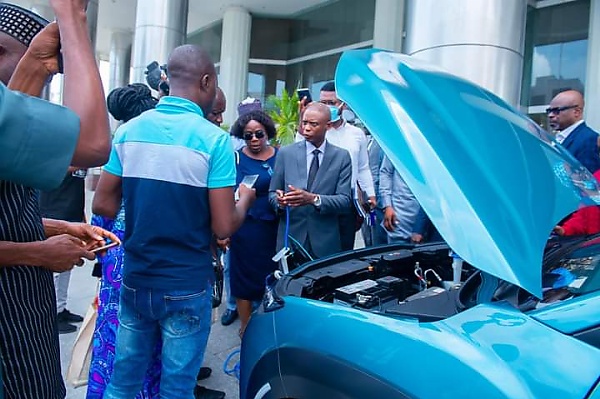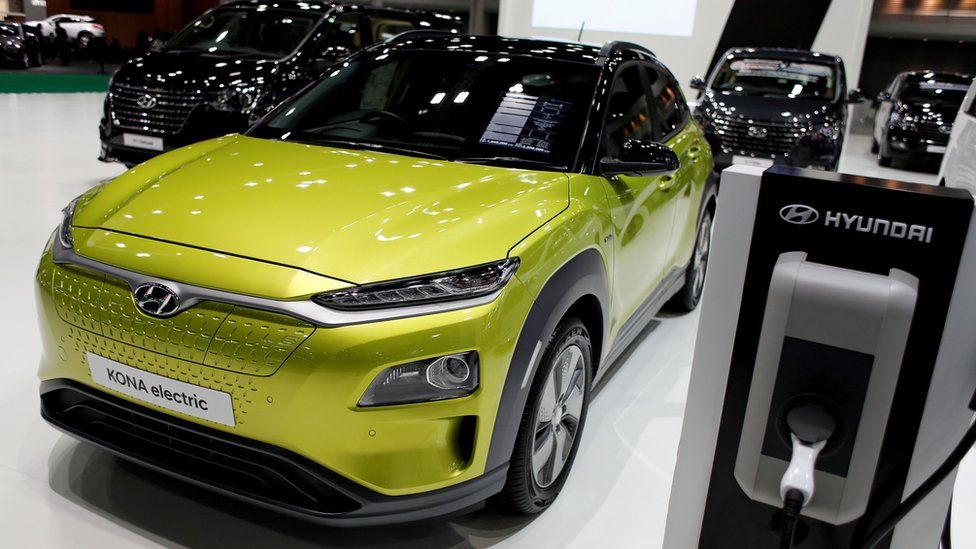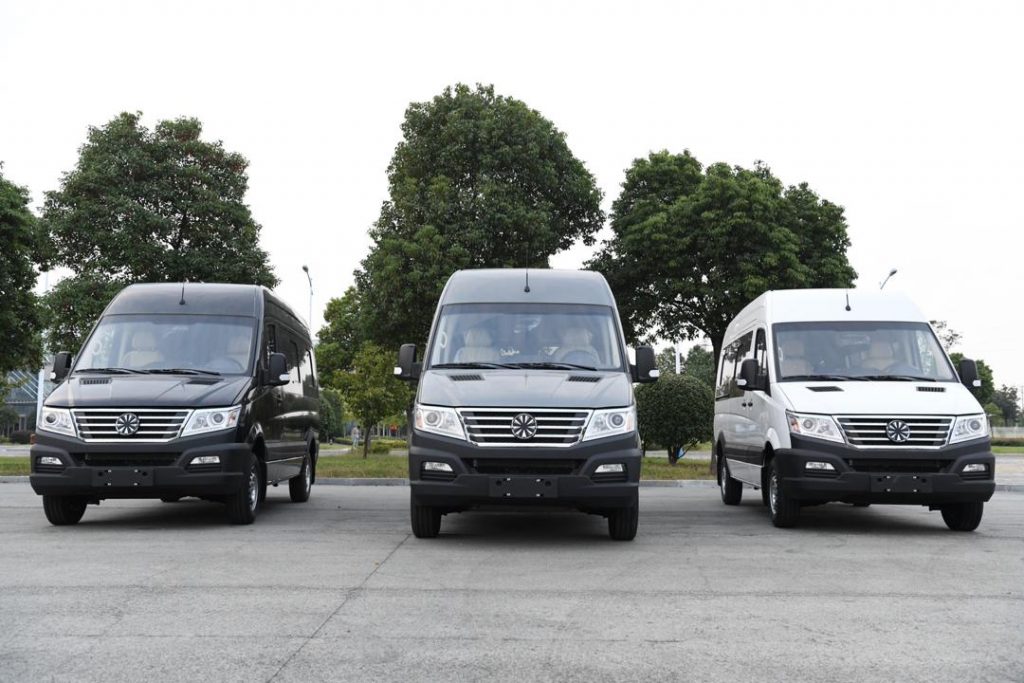
The
AUTOMOBILE
Genius

Director General of Nigeria Automotive Design and Development Council(NADDC), Jelani Aliyu
For more than two decades, Jelani Aliyu has garnered Excellence as a global automotive designer being the Africa trailblazer in automobile industry – Electric in particular.
Director General of Nigeria Automotive Design and Development Council(NADDC), Jelani Aliyu, is a global renowned automotive designer with over twenty years of international experience auto design vis-a-viz management of automobile industry.

Director General of Nigeria Automotive Design and Development Council(NADDC), Jelani Aliyu,
explaining the working mechanism of electric car
Sharing his experience, expertise and ingenuity in automotive industry, the Director-General of the National Automotive Design and Development Council, NADDC, Mr. Jelani Aliyu, has urged African countries , research institutions and investors to promote and adopt electric vehicles.
The Director General NADDC made the call while speaking at a three-day workshop staged by the UN Environment Programme, UNEP, held at the UN Africa headquarters in Nairobi, Kenya, emphasizing that Africa needs electric mobility more than other parts of the world.

Mr. Jelani Aliyu speaking at a three-day workshop staged by the UN Environment Programme, UNEP, held at the UN Africa headquarters in Nairobi, Kenya
Mr Aliyu who spoke as a Guest Speaker at the workshop themed: ”Shifting to Efficient and Zero Emission Vehicles in the Global South,” said: “the people of Africa themselves have incredible heritage and history, from the times of the builders of the great pyramid of Giza to the reign of Mansa Musa of Mali, to the dreams, hopes and aspirations of modern-day Africans.
“These are dreams, hopes and aspirations that must now be realised to positively change the lives of every man, woman and child on the continent at an aggressive pace.” Mr. Aliyu said.

Mr. Jelani Aliyu speaking at a three-day workshop staged by the UN Environment Programme, UNEP, held at the UN Africa headquarters in Nairobi, Kenya
He further opined that it was clear there was need for massive industrialisation and transformation in Africa, and that, it must be achieved, and must be done without destroying the continent’s environment and that with the abundance of sustainable energy, electric mobility would be the unparalleled solution.
Mr Aliyu at the forum shared experience, journey and successes so far achieved on electric mobility in Nigeria, saying: “We have put together a technical committee to work on and create a legal framework for the promotion, adoption, patronage and usage of electric vehicles (EV) in Nigeria, “this will further expedite the development of Electric Mobility in the country,” he said.

Mr. Jelani Aliyu discussing with one of the participants at the workshop
He disclosed that the Hyundai Kona EV was already being assembled in Nigeria, and Jet Systems Motors has the Jet Mover Electric Van. Max E has developed an electric motorcycle and Phoenix Renewables is converting mini buses from petrol to electric.

Hyundai Kona EV
“NADDC has started the development of Electric Vehicle changing infrastructure with three pilots of 100 per cent Solar Powered EV Charging Stations located at universities to support technology transfer.”
Mr Aliyu said, there was an opportunity to collaborate and get necessary support from the GEF (Global Environment Facility) programme of the UN in funding electric mobility research and projects in Nigeria.

Jet Mover Electric Van
The director-general said that such included the work the NADDC was doing in partnership with academia both within and outside Nigeria towards solar-powered traction platforms for small farmers.
He urged participants that the industry would not grow from importation alone but by developing home-grown technology.
Mr Aliyu said: ”The future must be achieved through ubiquitous and sustainable industrialisation, enabled by intelligent electric mobility to every relevant nook and cranny of Africa.”
The UNEP workshop showcased the activities and impacts of UN’s Global Fuel Economy Initiative, GFEI, in developing countries.
It also brainstormed on the needed support to help them improve the efficiency of their relative vehicle fleets, including developing economy and Electric Mobility policies.
The workshop also fostered South-South cooperation among the supported countries and shared the experiences and practical examples from participating countries on cleaner and efficient fuels and Electric Vehicle policy development.

Delegates at the workshop
Delegates from Africa, Asia-Pacific, Eastern Europe and the Caucasus, Latin America and the Caribbean participated in the face-to-face workshop.

